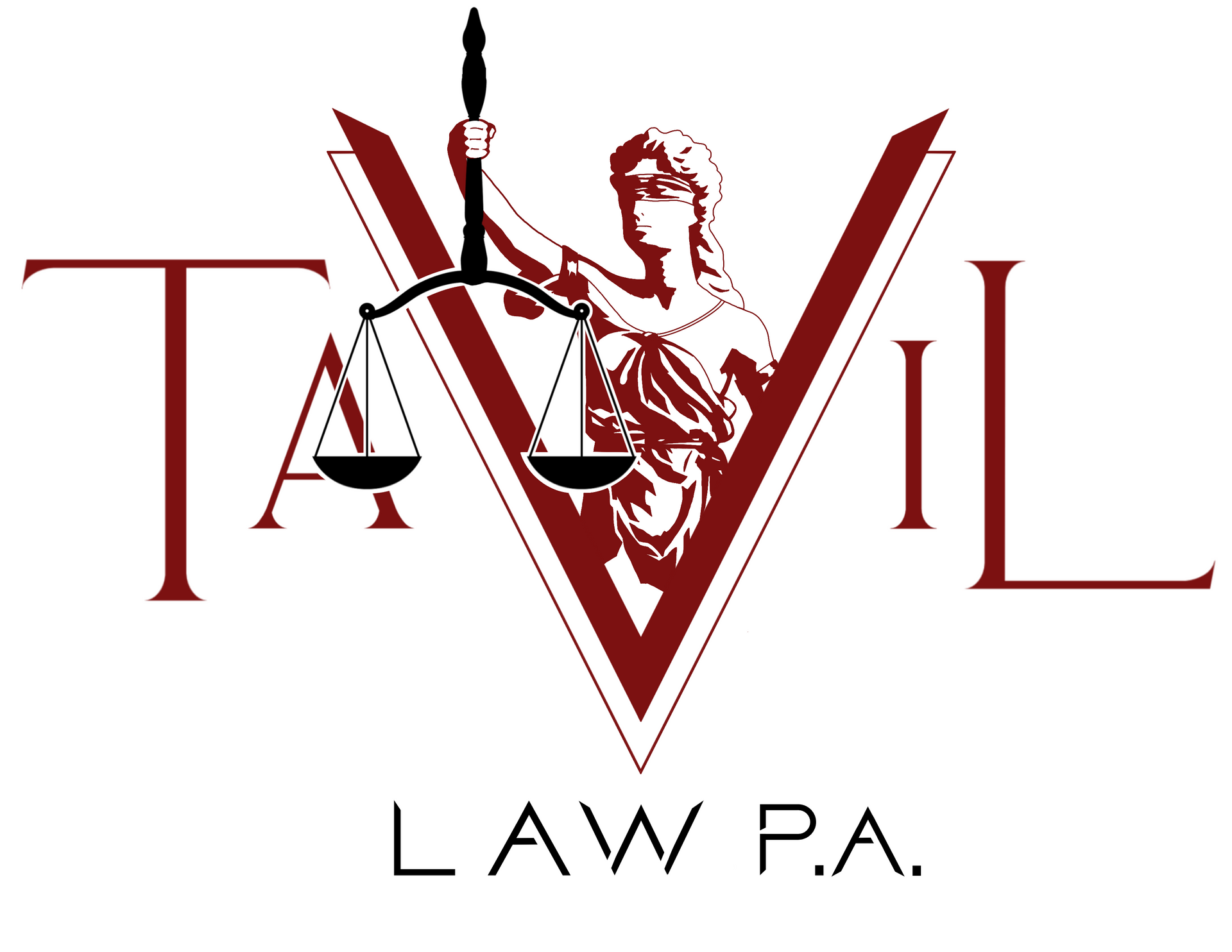Client Login
×|
ABOUT BLOG
Tavil LAW, PA News
GET THE LEGAL ASSISTANCE YOU REQUIRE AT THIS MOMENT
|
Florida's 2025 Civil Procedure Rule Changes: Streamlining Litigation with Stricter Deadlines and New Disclosure Requirements
The Florida Supreme Court’s amendments to civil procedure rules, set to take effect on January 1, 2025, represent a major shift in how civil litigation is handled in Florida’s state courts. These changes, made with the goal of streamlining the litigation process and aligning state court procedures more closely with federal rules, will profoundly impact both the way attorneys handle cases and how clients engage in the litigation process. The changes aim to expedite case resolution, reduce delays, and make the system more predictable. Below is a detailed exploration of these new rules and their implications:
1. Upfront Discovery Disclosures: Rule 1.280
One of the most immediate and significant changes is the introduction of upfront discovery disclosures. This change requires parties to provide detailed information to the opposing party within 60 days of the complaint being served.
Key Disclosures:
- Individuals with discoverable information: Each party must disclose the names, addresses, and phone numbers of individuals likely to have relevant information, along with a description of the information they may have.
- Documents: Parties must provide a description (or copy) of documents they may use to support their claims or defenses, including their location.
- Damages Computation: A detailed calculation of damages claimed must be provided, along with supporting documents.
- Insurance Policies: A copy of any insurance policy that might cover the claims must also be disclosed.
This requirement means that clients must gather and provide most of their documents and information before or very early in the litigation process. This is a stark departure from previous practices where discovery (e.g., gathering evidence, requesting documents) could take place after the lawsuit was filed or after service of process. Now, both parties will need to prepare these disclosures early, ensuring a more transparent and quicker process right from the start.
Impact on Clients:
- Clients will need to be more proactive and organized in collecting documents and information.
- Legal teams will need to begin the discovery process almost immediately after filing, reducing the time for investigation.
- Clients can expect a faster and more open exchange of documents and data, which may make the process feel more intense and urgent.
2. Proportional Discovery and Supplementation: Rule 1.280
Under the amended Rule 1.280, discovery must be proportional to the needs of the case. This means that the scope of discovery will be measured by factors such as:
- The importance of the issues at stake in the litigation.
- The amount in controversy.
- The parties' resources.
- The significance of the discovery to the case.
Additionally, parties are required to supplement their disclosures and discovery responses whenever new information becomes available. A failure to supplement may result in sanctions or exclusion of that information in later stages of the case.
Impact on Clients:
- Clients can expect to see more control over the scope and depth of discovery, as the focus will now be on what is actually relevant and necessary.
- However, there is still a requirement to keep the opposing side informed if new evidence or information arises, potentially making litigation more dynamic.
3. Expedited Case Management: Rule 1.200
Rule 1.200 has been completely overhauled to impose a structured timeline for case management. Case management orders will now be required within 120 days of filing a lawsuit and will classify cases into three tracks:
- Streamlined cases: Expected to be resolved within 12 months.
- General cases: Expected to be resolved within 18 months.
- Complex cases: Expected to be resolved within 30 months.
This track assignment will guide the entire litigation process, ensuring that cases progress according to predetermined schedules. The court must issue specific deadlines for each phase of the litigation, and the parties must comply with these deadlines without delay.
Impact on Clients:
- Strict adherence to deadlines: Failure to meet deadlines or seek timely extensions can result in sanctions. This puts pressure on clients to move quickly through the litigation process.
- The litigation process will be more predictable, with clear timelines for when to expect actions and resolutions.
- Clients will need to prepare to proceed with the case swiftly, even while exploring settlement options or negotiating with other parties.
4. Restrictions on Continuances and Extensions: Rule 1.460 & Rule 1.090
The amendments to Rule 1.460 severely restrict the ability to obtain continuances. Once a trial date is set, the court is strongly discouraged from granting continuances unless there is good cause. Furthermore, any motion for continuance must include specific dates for when the issue (e.g., witness availability) will be resolved, so that a new trial date can be promptly set.
Similarly, Rule 1.090 has been revised to require good cause for requesting extensions of time, and excusable neglect if the request is made after the deadline has passed.
Impact on Clients:
- Clients will likely face fewer opportunities for delays or adjustments to the litigation schedule.
- Legal teams will need to be diligent about meeting deadlines and preparing for trial, as any delay could be viewed unfavorably by the court.
5. Amendments to Summary Judgment Process: Rule 1.510
The amendments to Rule 1.510 introduce tighter timelines in the summary judgment process. Under the new rule:
- Responses to summary judgment motions must be filed within 40 days of the motion’s filing.
- Hearings on motions for summary judgment cannot occur sooner than 10 days after the expiration of the response deadline.
- This change is intended to streamline the summary judgment process and ensure that cases are not stalled unnecessarily by delays in responding to motions.
Impact on Clients:
- Clients should expect that if summary judgment motions are filed, the response time will be faster, meaning decisions may be made more quickly.
- Legal counsel must be prepared to act quickly to respond to motions and advance their case.
6. Specificity in Objections and Sanctions: Interrogatories & Requests for Production
The rules governing interrogatories and requests for production have been updated to require more specificity in objections. For example:
- Objections to interrogatories must be clearly stated, and any objections not raised are deemed waived.
- Objections to requests for production must specify if any documents are being withheld due to the objection.
- Failure to properly object can result in sanctions, including the possibility of a jury being instructed to view the party’s non-compliance unfavorably.
Impact on Clients:
- Clients will need to ensure that their attorneys are meticulous about raising valid and specific objections during discovery.
- Inaccurate or incomplete objections could weaken a party’s case or result in negative outcomes during trial.
7. Early Trial Date & Amended Pleadings
One of the significant changes is that trial dates can be set before the pleadings are closed. In the past, trial dates could only be set once the parties had finished amending their pleadings. Now, this no longer delays the setting of trial dates, which could lead to earlier and more fixed trial schedules.
Moreover, amendments to pleadings will no longer be a valid reason to delay a trial, meaning parties must be ready to go to trial once it is set.
Impact on Clients:
- Clients must be ready for trial earlier in the process, even if there are still pending changes or updates to the legal arguments.
- Preparing for trial becomes an ongoing process, and clients may have less time to amend their cases or delay proceedings.
8. New Rule for Motion Conferral: Rule 1.202
New Rule 1.202 requires parties to confer in good faith before filing any non-dispositive motions (i.e., motions that do not seek a final resolution of the case). This rule mandates specific certifications about the efforts made to resolve disputes without court intervention.
Impact on Clients:
- Clients may experience additional negotiation and resolution efforts before formal motions are filed, potentially reducing the number of court hearings.
- Sanctions can be imposed if the required conferral process is not followed, which could delay the resolution of a case.
Conclusion
In sum, these rule changes introduce a faster-paced, more structured, and less flexible litigation process in Florida. Clients will face more compressed timelines, more rigorous requirements for document production, and limited opportunities for extensions or continuances. Legal teams will need to work more efficiently and proactively, and clients must be prepared to engage in the litigation process more quickly and with greater attention to detail than ever before. These changes are designed to make litigation more predictable and streamlined but will require careful planning and execution on the part of clients and their legal counsel.


